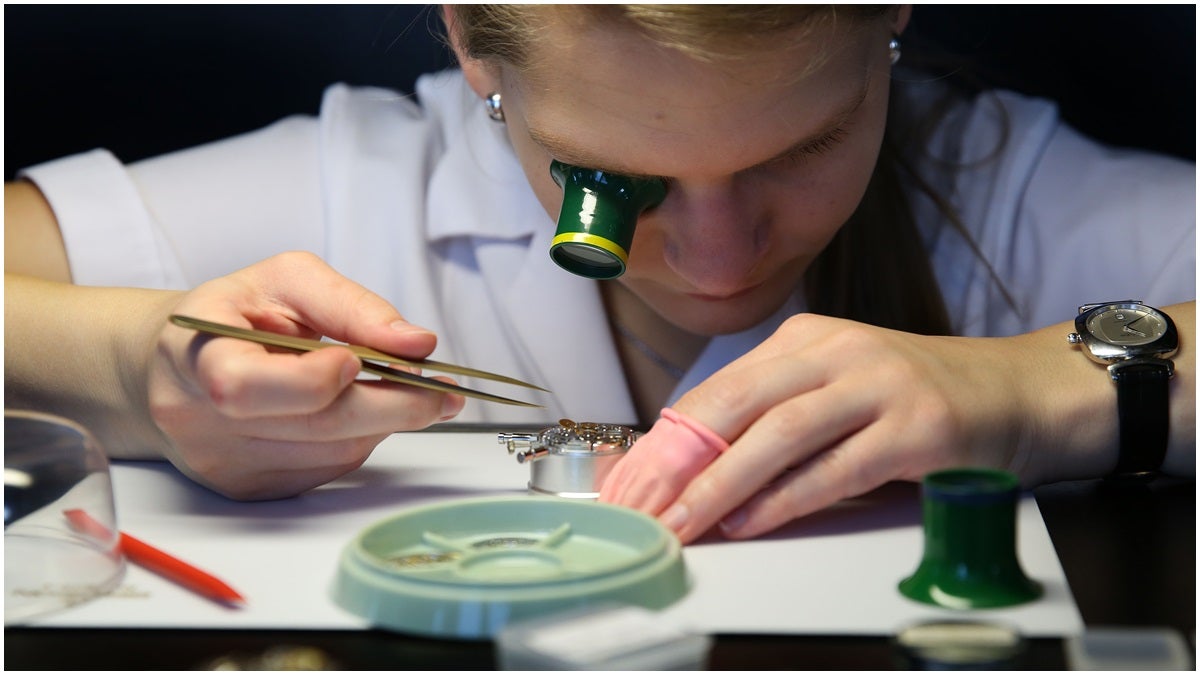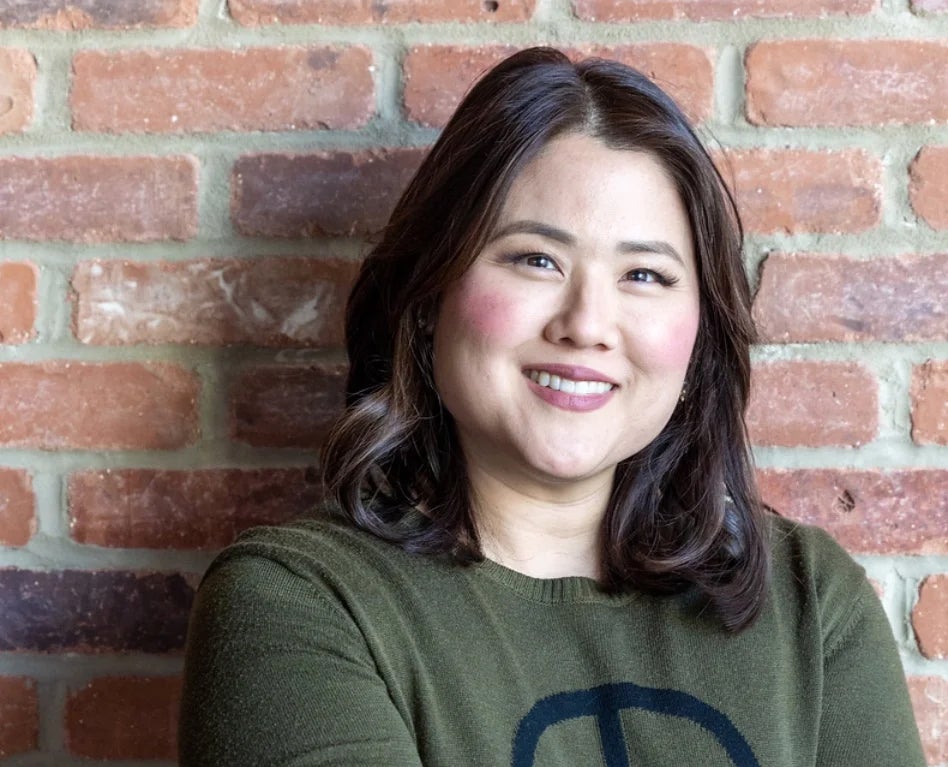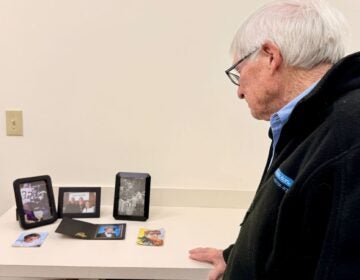Delaware home to watchmaking school for veterans [video]
Listen
(Photo by Joel Ryan/Invision for The Hollywood Reporter/AP Images)
A retired Baltimore cop is starting a watchmaking school exclusively for veterans in Delaware.
The Veterans Watchmaker Initiative will teach veterans the highly-skilled art of watch repair, free of charge. Founder Sam Cannan is converting a former EMT base in Odessa into a classroom and workspace.
“The Veterans Watchmaker Initiative is the only technical school that teaches watchmaking exclusively for veterans in the entire country,” said Cannan, who hopes to welcome his first class by summer, if not sooner.
Cannan is a master watchmaker and a trained instructor. His idea to enlist veterans, disabled vets especially, is not an original one. Cannan was inspired by the Bulova family.
After World War II, the American watchmakers opened the Bulova School of Watchmaking in 1945 in Woodside, New York. It closed in 1993.
“They trained an entire generation of veterans as watchmakers and it worked then and it works now,” Cannan said. “I kind of joke about saying if you have one eye, and one arm and you have the heart to do this, to overcome, we can make you a watchmaker and you can make a good living no matter what.”
Supply and demand
There are two types of watches. A mechanical watch is powered by a really small spring and is usually pretty expensive. Luxury watches manufactured by Rolex and Cartier fall into this category. The majority of watches sold today use quartz technology; that means they run on batteries.
Demand for mechanicals took a nosedive when quartz watches hit the market in the ’80s. The quartz crisis decimated luxury watch production. Consequently, the need for professional watchmakers also took a hit.
“Then suddenly the pendulum began to swing the other way. And what happened is the industry suddenly realized, ‘We don’t have any watchmakers to fix all these mechanical watches that we’re producing,'” Cannan said. “The demand for watchmaking is just incredible.”
The main players in the watch industry are scrambling to set up schools, he said, but they can’t keep up. The industry is losing more watchmakers to retirement or old age than they’re graduating. Watchmaking is not easy. It entails a lot more than just swapping out parts.
“They basically walk out of school as what’s known as a micro-machinist. Any part that they need, they can create from scratch, which is the hallmark of a watchmmaker,” Cannan explained.
In the waiting line
Army veteran Jason Adams is one of more than 350 veterans waiting for VWI to open its doors.
“I love seeing how things work and the therapeutic side. I was reading about how it helps people with post-blast exposure on just being able to clear their minds for that few moments is a nice thing to have when you need it,” said Adams, who was injured during his second deployment to Iraq.
The 35-year-old’s unit hit an improvised explosive device during his second deployment to Iraq. He suffered a traumatic brain injury, PTSD and shrapnel wounds. Adams was found medically unfit. He retired from the Army in 2010.
A single blast took away the only professional life Adams had ever known. Years later, Adams still battles chronic migraines and depression. Decision-making is a struggle for him, even trying to remember to eat. Adams depends on his family every single day. When he heard about VWI, he saw it as a way for him to regain some independence.
“When I was in the military, you had this purpose, this drive, you knew you were doing your part in society. And now that I have all these disabilities, it’s like what can I do to once again be part of our growing as a nation, and society and all that together,” Adams said.
“We give you a skillset that takes you out of the Social Security realm and back into being gainfully employed. And you set your own course no matter what your disability,” Cannan said.
U.S. Air Force veteran Don Morton is also on the waiting list.
“It’s stupefying that we can let people die, get maimed, risk their life every day and then not do anything for them,” said Morton, who has always liked watches since he was young.
“Then I ended up getting one of my grandfather’s watches that he had gotten from his great grandfather and after I saw that, it needed to be fixed, and I didn’t trust anyone to fix it, so I said I’m going to learn how to fix watches.”
Rick Hofmann served in Vietnam. The 71-year-old lost his leg in a motorcycle accident. He walks around with a prosthesis. Hofmann fell in love with the program instantly and enrolled in the 18-month course. He also plans to teach his fellow vets jewelry repair through VWI.
“There [is] 82 percent unemployment among disabled vets; 22 veterans commit suicide per day; and we need to get this place started because every moment we miss, we’re losing somebody,” the Army veteran said. “These people are powerful people. They are smart, they’re intelligent, they’re driven. And whether they have a physical issue or whether they’re suffering from PTSD, it doesn’t make any difference because they can learn and they can excel at this particular endeavor.”
Cannan said the only qualifications to enroll in VWI is an honorable discharge and the heart to persevere. Eight veterans will likely make up the first class, most of whom live locally.
Cannan had hoped to open VWI on April, 1 but he is waiting for Artesian Water to hook up water to the site in Odessa and for some electrical work to be done in Middletown. Once that happens, he can get the wheels in motion.
The future of VWI
Eventually, Cannan intends to expand VWI. The Money family of Middletown donated four acres of land to VWI along U.S. Route 301. The plans are to build a 28,000 square foot main campus there, where a total of 54 students will live, eat and work on their craft.
Once the school is built in Middletown, the Odessa site will become a full-time service center where graduates and service and fix watches for profit. The service center would be one revenue stream.
Cannan said VWI will still rely heavily on corporate and private donations. The nonprofit will also seek out grant money to sustain itself long term.
“It’s become my goal in life to do this, this is what’s going to happen one way or another, or it’ll kill me, to make this happen for these guys and gals because they need this,” Cannan said.
WHYY is your source for fact-based, in-depth journalism and information. As a nonprofit organization, we rely on financial support from readers like you. Please give today.





